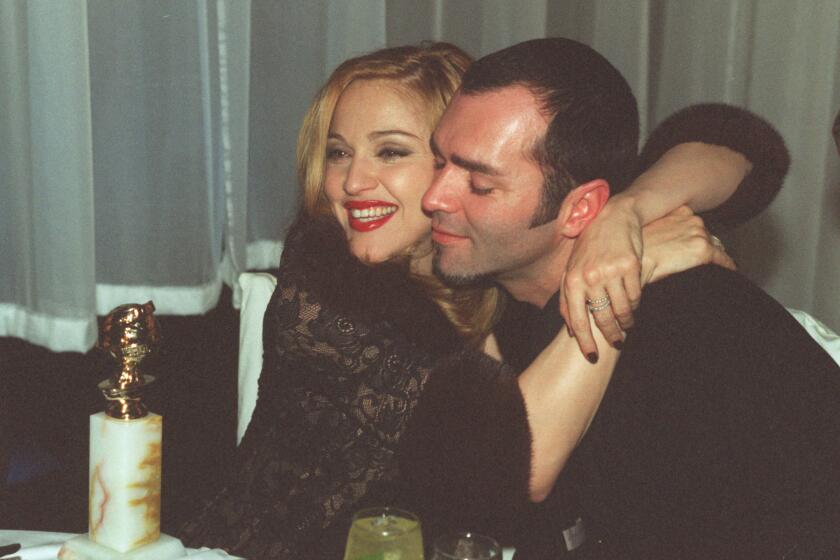Real-Life Brady Bunch Changed the Script
You remember them. The lovely lady with three very lovely girls, hair of gold like their mother’s? The man named Brady, busy with three boys of his own? They somehow formed a family for television audiences of the late ‘60s. Two decades later, “The Brady Bunch” remains America’s ideal stepfamily.
In reruns, they stay frozen in time, continuing to deal with the same minor crises over and over again. Unless the Bradys come back with a reunion show, as Beaver Cleaver and Dobie Gillis have done, there is no way we can know what might have become of them in later years. Did the youngest trade her blond curls for the frizzy look? Did the middle boy develop a drug problem? Maybe we would rather not find out.
Instead, here is the story of a real-life stepfamily that patterned itself after the Bradys back in 1969. There were a few differences: She had the boys, he had the girls, and there were only two of each. They had no housekeeper for comic relief. And as much as they intended to form a family, it just didn’t work out. Two years after she became a stepmother, Sharon, who lives in Newport Beach, realized that her situation would never measure up to Florence Henderson’s. She bailed.
Now an ex-stepmother, Sharon wrote to offer her own insights about what makes stepfamilies work--and what makes them fail.
“I had been divorced two years and had two boys, ages 5 and 2, when I met John, a man I had worked with 10 years previously,” she says. “He was widowed with two lovely daughters, ages 13 and 11.”
They dated for three months “and soon all our friends were saying, ‘Oh, you’re a real-life Brady Bunch.’ We were teased all the time about it.” Sharon and John laughed at the idea, but they also found it appealing.
“I probably thought I was in love with him,” Sharon says. But when John proposed after a “marvelous” family camping vacation in Big Sur, “I had instinctive misgivings about the marriage but couldn’t pinpoint what they were. I said no.”
When he asked again a few months later, Sharon agreed, partly because of her fondness for John, partly because they all seemed to need each other so much.
“John’s girls needed a mother badly. . . . I was having problems with my youngest son because I was working at home to support us and was not always available to play when he wanted. John made a good living, and I would be able to stay home with all of the children.”
Sharon’s choice of words was deliberate. She meant to say “mother”--not “stepmother”--because she doesn’t see much difference between the two roles.
“And that’s why it didn’t work out. I tried to be a parent to those girls. Not only did he undermine me on that, but he didn’t want to be a parent to them either. He wanted to be their buddy,” Sharon says.
“Their mother had been dead two years when we got married, and neither of their parents had been a good disciplinarian,” she says. “There may have been a little bit of trouble at first because I gave them rules and if they broke them, there were consequences. But after a while, they thrived on it.”
Before the wedding, Sharon and John had worked out an agreement on rules for the household and for all four of the children. John stuck to the agreement when it came to Sharon’s sons. But with his daughters, he balked.
Sharon says she didn’t realize there was a problem until about a year after they were married.
“One afternoon, the girls told me they wanted to talk to me. The oldest girl, who was then 14, said, ‘We just don’t understand Dad.’ And then she proceeded to tell me that when one or the other disobeyed or broke a rule and was punished--usually by being grounded--their father would . . . tell whichever girl was grounded that she didn’t have to pay any attention to me.
“They’d be grousing, the way kids normally do because they’d been late coming home and I’d grounded them. They’d say they didn’t like me, but they really didn’t mean it.
“And then he’d tell them, ‘I don’t like her either. You don’t have to pay any attention to her.’
“When I confronted John later, he hemmed and hawed about how he felt sorry for them when they were being punished and thought the rules were too strict.”
At an impasse, Sharon and John went to a marriage counselor. “When I told the counselor what the girls had told me, she confronted John.
“ ‘You and your wife agreed on the rules before you married,’ the counselor said to John. ‘Why don’t you back her up when she follows the punishments you decided on?’ ”
Over and over, John gave the same answer: “I just don’t agree with her.”
Sharon stayed one more year and tried to work things out. John’s younger daughter “became a runaway, a drug user and sexually promiscuous,” Sharon says. “My hands were tied. It was horrible. I tried to help her, but he would say, ‘She’s not your child; she’s my child. And I’m not going to do anything.’
“It just killed me. This was the heyday of the Haight-Ashbury, and she ran away to San Francisco. When the police found her, they called him, but she said I could come and get her but not him.
“When I could no longer stand watching this beautiful girl destroy herself, I went to another marriage counselor for help in getting out of the marriage.
“He explained what had happened. He told me that the girls loved the discipline, that they thrived on knowing their limits and boundaries. What had happened with the younger girl was that seeing for the first time what parenting was, that it was caring enough to be the ‘bad guy,’ to set down rules and limits, she wanted her daddy to be like that. And so she would do more and more bad things in order to get her daddy to discipline her. And he never did.”
Almost two years to the day after the wedding, Sharon took her boys and moved to a nearby apartment. “It hurt more to leave them (the girls) than it did to leave him,” she says. “By then, my feelings for him were destroyed by all the undermining. But I had a bond with them, and it just killed me to have to break it.
“When I told the girls I was going to be moving, they asked me, ‘Can’t you stay here with us and Dad leave?’ I even called my attorney to ask if it would be possible. But his advice was that I had enough to worry about without taking on more responsibility.”
Sharon, now 52, still keeps in touch with her former stepdaughters--mostly through cards and letters at Christmas. “It’s not a close relationship. They live in Northern California now. If they were down here, I’d see them,” she says. Once, about six years after Sharon moved out, she met them for Sunday brunch and talked over old times.
She hasn’t remarried, partly because she was afraid to become a stepmother again. “I’ve had a couple of relationships that almost ended up in marriage,” Sharon says. “And when my boys were younger, it really weighed on my mind that they needed a father figure. But I just didn’t want to take on anybody else’s children again.”
The girls, however, got a new stepmother right away. “Their father got married six months after we were divorced. His new wife was a lot smarter than I was. This gal just out and out said, ‘You will make the rules, you will enforce them, and I won’t have anything to say about it. You keep out of my kids’ life, and I’ll keep out of yours.’ ”
But Sharon said that approach would never have worked for her. “That’s just not being a family.”
The complete guide to home viewing
Get Screen Gab for everything about the TV shows and streaming movies everyone’s talking about.
You may occasionally receive promotional content from the Los Angeles Times.



